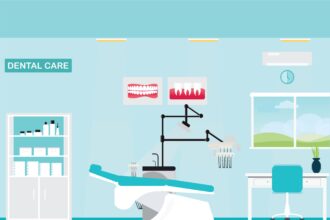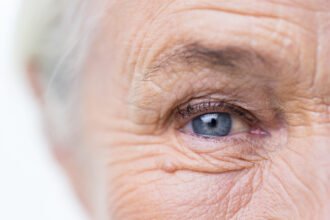Dementia is an overall term used to describe a number of conditions associated with a severe decline in someone’s mental abilities. Alzheimer’s disease is one of the most common types of dementia. It accounts for up to 80 percent of cases of dementia. Although Alzheimer’s disease worsens with time, patients can still experience memory lapses and loss of concentration during its early stages. If you have a parent with dementia of any type or with Alzheimer’s disease, they will need greater care. Below is a rundown of ways through which you can help a parent with dementia to stay safe.
1. Get them to the doctor
If you have parent with dementia, getting them to a doctor is probably the most logical thing to do. Although some types of dementia such as Alzheimer’s disease may not be curable, a doctor can provide temporary medication meant to improve the symptoms. Examples of such medications include cholinesterase inhibitors and memantine. Cholinesterase inhibitors are primarily intended for Alzheimer’s disease. However, they can still be used in managing other dementias such as Parkinson’s disease and vascular dementia. On the other hand, memantine functions by regulating the chemical messengers involved in the brain functions. A doctor can also provide your ailing parent with the necessary medication for agitation, sleep disturbance, depression, and other problems that come with dementia.
2. Consider putting a stop to them driving
Dementia is usually associated with loss of memory and concentration. Thus, people with dementia cannot drive safely. Therefore, if your parent living with dementia is still driving, you have to do what you can to get them to stop driving. In some cases, it may be difficult to persuade your parent to stop driving. They may be stubborn and unwilling to stop. However, for the sake of their safety, it is advisable for you to sit down with them and convince them that it is no longer safe for them to continue driving. You can also involve other members of the family if you can’t do it alone. If this fails, you can go to as far as secretly reporting them to DMV. Although it may hurt your parent emotionally; getting them to stop driving will significantly enhance their safety. All you have to do is to assure them that they will still be able to go out by other means.
3. Get them a medical alert system with fall detection
Falling is quite a big issue among seniors, including those without dementia. However, it can be even more prevalent among those who have Alzheimer’s disease. Falls among people aged 65 and above can lead to fatal injuries. To address this apparent challenge, you can get your ailing parent a medical alert system with fall detection. This gadget can help your elderly parent get assistance quickly in case of an injurious fall. By pressing the SOS button, your parent will be connected to an agent who will assist them. Reading reviews of the best medical alert systems can help you decide which one is best for your parent. In a nutshell, a medical alert system with fall detection will go a long way in enhancing the safety of your ailing parent by ensuring that there is always someone ready to assist them in case of a fall.
4. Get a GPS tracker
Familiar places may sometimes appear unfamiliar to elderly people who have dementia. Therefore, seniors may have difficulty finding their way around familiar places. The problem is that wandering might lead them into unsafe situations. To deal with this apparent problem and reach peace of mind, you can get your parent a GPS tracking device. This will make it easier for you or other caregivers to easily locate your ailing parent if they can’t find their way back home.
5. Consider a long-term memory care facility
Although many families prefer staying with their elderly loved ones suffering from dementia at home, there comes a time when these seniors will need 24/7 supervised care. This is why it is important for you to consider taking them to a long-term memory care facility like Assured Assisted Living. Doing this will ensure that they are always in a secure environment. A memory care facility will also help your ailing parent with medication, grooming, bathing, and dressing among other daily tasks.
The Takeaway
Ultimately, if your parent has Alzheimer’s disease or other dementias, you may have to take several steps to ensure that they are safe. For instance, you can get them to stop driving and find a doctor who will help them get the right medication. You can also get them a medical alert system and GPS tracker to ensure that they can easily find assistance when in trouble. Even though you parent could have an incurable kind of dementia, you can enhance the quality of their life and keep them safe by taking the steps mentioned above for them. It may be tough emotionally, but rest assured that you’re doing your best to be the best kind of caregiver you can be.







